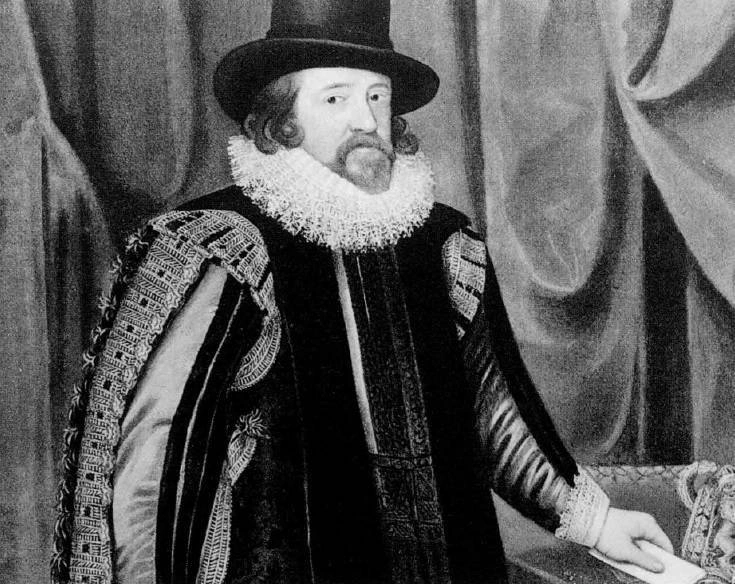Encyclopedia of Philosophy: Francis Bacon
Publié le 09/01/2010
Extrait du document

The most distinguished philosopher of science during the Renaissance period was not himself a researcher. The essayist Francis Bacon (1561–1626) was almost the same age as Galileo; educated at Trinity College, Cambridge, and Gray's Inn, he followed a career at the Bar and in the House of Commons. In 1591 he became a client of Queen Elizabeth's favourite, the Earl of Essex; then, when Essex proved treasonable, he took a leading part in his prosecution. He was knighted by James I on his accession in 1603, and became Solicitor-General. In 1605 he wrote the first of his major philosophical writings, The Advancement of Learning, an elaborate classification of all possible sciences. He was soon promoted to be Attorney-General and finally in 1618 Lord Chancellor, as Lord Verulam. In 1620 his second major work, the Novum Organum, was published; it was intended as part of an enormous project, the Instauratio Magna, which was to take all knowledge for its province. In 1621, subjected to a Parliamentary inquiry, he pleaded guilty to charges of bribery, and was exiled from court and temporarily imprisoned. He died at Highgate in 1626, from a cold caught, so it was said, while stuffing a hen with snow in order to observe the effect of cold on the preservation of meat.
Liens utiles
- NOUVELLE ATLANTIDE (LA), Francis Bacon - résumé de l'oeuvre
- NOVUM ORGANUM (LE NOUVEL INSTRUMENT), Francis Bacon
- Francis Bacon : Pensées et vues sur l'interprétation de la nature (résumé et analyse)
- NOVUM ORGANUM ou Éléments d’interprétation de la nature Francis Bacon - résumé, analyse
- NOUVELLE ATLANTIDE (La ) - Francis Bacon































